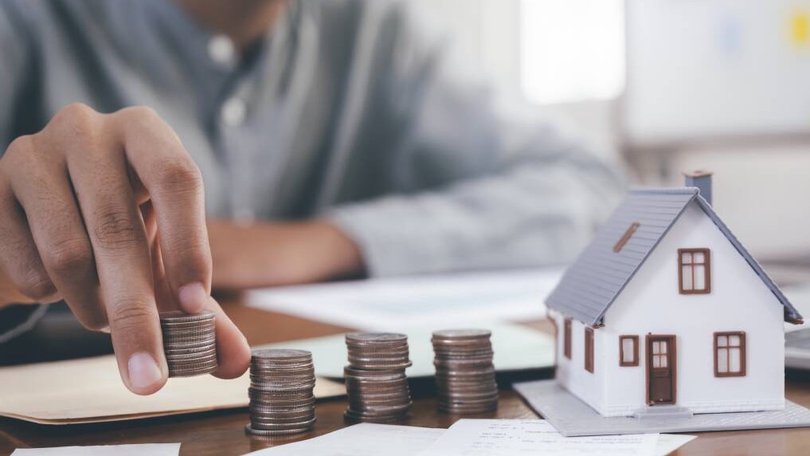5 steps to (potentially) be mortgage free

With the new financial year well and truly underway, plus a property market that keeps heading skywards - more and more homeowners, with good equity positions, are looking for ways to make the best use of their situation.
A question I'm often asked is 'what is debt recycling and is it right for me?'.
At its core, debt recycling is about replacing your non-deductible home loan debt with tax-deductible investment debt.
Sign up to The Nightly's newsletters.
Get the first look at the digital newspaper, curated daily stories and breaking headlines delivered to your inbox.
By continuing you agree to our Terms and Privacy Policy.Done well, it may help you pay off your mortgage sooner and grow an investment portfolio at the same time.
Done poorly, it can create stress you really do not need.
So, what exactly is it, how does it work and what should you weigh up before diving in?
What is debt recycling?
Debt recycling is a long-term financial strategy where you use the equity in your home to invest in income-producing assets.
As the funds you borrow for investing are used to generate assessable income, the interest therefore becomes tax-deductible (always best to check with your Accountant before you do anything!).
Over time, you can gradually shift your debt from one with no deductions (home loan = generally not tax-deductible), to debt that has more tax benefits (investment loan = generally considered tax-deductible), while building assets that can help you grow your wealth, outside of the family home.
A simple 5 step process on how debt recycling works
- Make extra repayments on your mortgage
Use surplus cash, bonuses or your tax refund to reduce your home loan principal and build equity. Or, if your property has gone up in value, you may be able to borrow against the increased equity position.
- Re-borrow against that equity
Through a separate loan split, access the amount you've just repaid. Talk to your Accountant and Mortgage Broker to make sure the new loan is set up correctly for tax purposes.
- Invest in income-producing assets
This might be Shares, ETFs, Managed Funds, or even an investment property (just remember property is not as liquid an asset and will have ongoing costs to factor in).
- Use the income and tax savings to pay down the home loan
Direct any dividends, excess rental income and tax benefits into your mortgage to reduce it faster, if that is your financial priority.
- Repeat the process
Each cycle chips away at your non-deductible debt while growing your investments. You can repeat the process as and when needed (remembering it will require you to reapply for debt, so serviceability is an important consideration).
The pros for debt recycling:
Tax efficiency
Investment loan interest is tax-deductible, which can lower your taxable income.
Pay off your mortgage faster while building wealth
Any extra repayments, investment returns and tax savings, can speed up the owner-occupied debt reduction process.
Diversification
You are not leaving all your wealth tied up in your home.
Keeps you moving forward
You can invest now, rather than waiting until the mortgage is gone.
The cons for debt recycling
Investment risk
If the investments underperform, you still have to meet the loan repayments. There is no guarantee that the investment return will be higher than the interest amount.
Interest rate risk
Higher interest rates will increase your repayment amounts on both the mortgage and investment loan.
Complexity
It needs careful structuring to keep the tax deductibility intact and meet ATO rules.
Leverage risk
You are borrowing to invest, which magnifies both gains and losses.
It's not for everyone
Generally better suited to people with strong, stable incomes and a long-term outlook.
Making the most of debt recycling this financial year
If you are considering debt recycling as part of your 2025/26 tax planning, here are a few tips:
Check your equity and loan-to-value ratio
You will generally need a good amount of equity in your home to use this strategy.
Get expert advice
A Financial Adviser, Accountant or Mortgage Broker can help set it up correctly and stress-test your numbers.
Model different scenarios
Use calculators to see how different interest rates, tax brackets and investment returns could affect the outcome.
Start small
Consider trialling it with a smaller amount and reviewing regularly.
The bottom line
Debt recycling can be a powerful wealth-building tool if you have the income stability, risk tolerance and time horizon to see it through.
It is not a quick win, and it is not without risk, but for some, it can mean paying off the mortgage years earlier while arriving at retirement with more than just a paid-off home.
With both a new shiny financial year here and month-on-month property rises, it might mean it's the perfect time for you to explore whether this strategy could fit into your financial plan, but it is one to approach with your eyes wide open.

------------
Jessica Brady is a qualified Financial Adviser and leading money expert. She is on a mission to educate and empower everyday Australians to be better with money through her online money programs and via the Financially Fierce Podcast. You can learn more at jessicabrady.com.au
This article is general advice only, all of the comments above do not take into account your objectives, financial situation or needs.
Before acting on any information, you should consider the appropriateness of the information provided and the nature of the relevant financial product having regard to your objectives, financial situation and needs. Jessica is licenced through Paragem Pty Ltd - AFSL 297276. ABN 16 108 571 875, Authorised Representative Number 001259972.
Originally published as 5 steps to (potentially) be mortgage free
